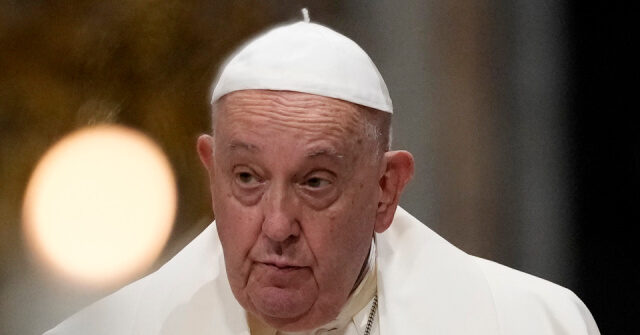In recent discussions surrounding the ongoing conflict in Gaza, Pope Francis has faced criticism for his remarks regarding Israel’s military actions. The Wall Street Journal’s editorial board has specifically condemned the pope for allegedly taking a side against Israel, noting that his comments have contributed to a narrative that aligns with anti-Israel sentiments. The board accused the pontiff’s use of terms such as “genocide” regarding Israel’s actions as detrimental not only to Israel but also to the discourse surrounding the complex Israeli-Palestinian conflict. This editorial critique highlights a larger issue of perceived bias in religious leadership during polarizing global events.
In a recent book-length interview, Pope Francis urged for a rigorous investigation by international experts to determine if Israel’s military activities in Gaza could be classified as genocide. He reflected that the current situation in Gaza bears characteristics that some experts associate with genocide, thus escalating his previous condemnations of Israeli military actions as “terrorism” and “massacre.” This shift in language has provoked strong reactions, especially from pro-Israel circles, who argue that such terminology unjustly vilifies Israel amidst a profound and multifaceted conflict.
Critics of the pope’s rhetoric, including the editorial board of the Wall Street Journal, argue that invoking the term “genocide” in this context is especially troubling considering the Jewish historical experience of genocide, particularly the Holocaust. They pointed to the recent brutal attacks perpetrated by Hamas on October 7, which targeted unarmed Israeli civilians, framing the current military actions as acts of self-defense from a nation under siege rather than acts of aggression requiring moral admonishment. The WSJ articulated that the pontiff’s statements have only served to embolden those who oppose the Jewish state, undermining efforts towards peace and reconciliation.
The Israeli Embassy to the Holy See quickly refuted the pope’s assertions, emphasizing that the October 7 attacks were in themselves a genocidal act against Israelis. They articulated that Israel’s military operations are conducted under international law principles of self-defense and should not be characterized as anything else. In their view, comparative terminology that equates Israel’s defense actions with historical genocides is not only inappropriate but also harmful to the broader understanding of the conflict’s nuances.
Adding to the debate, an Italian Holocaust survivor, Edith Bruck, criticized Pope Francis’s remarks, arguing that the historical understanding of genocide is being improperly applied to the current circumstances. Bruck, a survivor of Auschwitz and other concentration camps, emphasized that real genocides—like those she endured—should not be conflated with the conflict dynamics in Gaza. She acknowledged the tragedy unfolding there, while cautioning against the insinuation that Israel’s existence and actions are genocidal in nature; she emphasized that it is Hamas that has openly declared intentions against Jews.
Bruck’s insights are reflective of broader concerns regarding the language used in discussions of the Israeli-Palestinian conflict. She warned against semantic dilution, where the term “genocide” becomes too readily assigned, potentially undermining the gravity of historical genocides. The juxtaposition of these perspectives emphasizes the complexities surrounding discussions of morality and survival in this protracted conflict, revealing deeply rooted sentiments and the potential consequences of rhetoric employed by influential figures such as the Pope. Ultimately, these discussions highlight the delicate balance required in framing narratives in an already polarized global environment.

